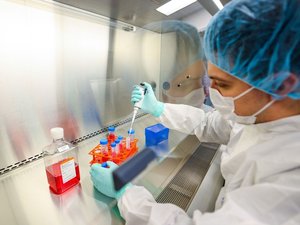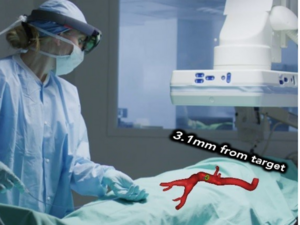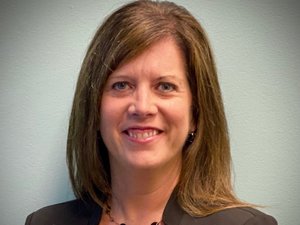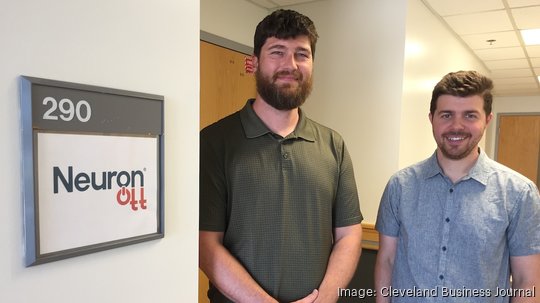
Covid didn't slow down development at Neuronoff Inc., a medical device startup based in Cleveland.
That's because Neuronoff's employees were working remotely to develop and improve the company's easily insertable electrode technology prior to the pandemic.
Now Neuronoff executives are raising their final round of angel funding in preparation for applying to the Food and Drug Administration for market approval, raising their first venture capital round and launching their product into the market.
"The upside of Covid, if there's such a thing, [is that it] has shown us that there [are] different ways to work, different ways to get work done," Stephan Nieuwoudt, Neuronoff's research and development director, told the Cleveland Business Journal.
Neuronoff's device answers known problems
Neuronoff's "injectrode" — an injectable electrode — came from the research of Andrew Shoffstall, an assistant professor of biomedical engineering at Case Western Reserve University in Cleveland and a primary member of the university's Neural Engineering Center.
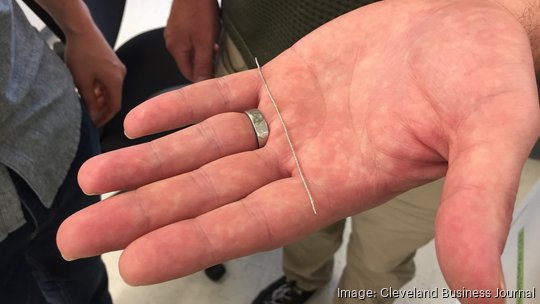
The company's injectable electrodes connect a neurostimulator to a patient's peripheral nerves to manage pain, but the devices eventually could be used in several other applications.
Neuronoff's injectrodes were developed to remain intact (implanted electrodes often break), stay anchored in the right spot (they sometimes wander off target) and be easily inserted and removed — innovations that might encourage doctors to choose neuromodulation for pain management earlier in the treatment paradigm, Nieuwoudt said.
The electrodes can be injected in less than one minute, and removing the electrodes, which are wound with wire six times thinner than the human hair, is done simply by pulling on them, he said.
Working remotely during the pandemic
Most of Neuronoff's employees, including Shoffstall, the startup's co-founder and chief scientific officer, and its research development and manufacturing teams, work in Cleveland. But the company's co-founder and CEO Manfred Franke and COO Shobha Aggarwal work in California. And until recently, Neuronoff's legal team was based in Alabama, Nieuwoudt said.
The startup also relies on a network of consultants in places such as Minneapolis, New York and Boston to help make their device better, he said.
"Luckily, for a lot of our work as a startup, there [were] not that many people" in Cleveland, so they could work alone in the company's laboratory or remotely, said Nieuwoudt, who earned an undergraduate degree in biomedical engineering and a Ph.D. in physiology and biophysics from Case Western Reserve.
"Being able to weather Covid was actually a lot easier" for Neuronoff than for some well-established companies, he said.
Nieuwoudt joined Neuronoff in 2020 as one of its first development employees after managing clinical research trials and preclinical studies for Case Western Reserve and Cleveland Clinic.
Nieuwoudt's longtime friend Bryan Patton joined Neuronoff in 2022 as the startup's marketing manager. Patton, who earned a bachelor's in management with a concentration in marketing from CWRU, founded and sold Mile High Clothing Co., an outdoor lifestyle brand in Denver before coming home to the Cleveland area.
Fledging from CWRU's incubator
As Neuronoff gets ready to raise its Series A investment round— likely between $6 million and $8 million — and fledge from CWRU's startup incubator in Cleveland, it is relying on outside experts to help the founders develop accessories, such as lead wires and stimulators, for their device.
"I think we started developing what we call the accessories to the product a little bit later than we should have," Nieuwoudt said, laughing. "So we're scrambling a little bit to get that done."
Neuronoff needs a full system that uses its injectrode to take to market, Patton said.
Already, Neuronoff's leaders are researching how to use their injectrode for other applications, such as controlling blood pressure and heart rate, and helping paralyzed patients empty their bladders, Nieuwoudt said.
Ideally, Neuronoff would be acquired by one of the large medical device makers that has been advising the company, Nieuwoudt said.
Sign up for the Business Journal’s free daily newsletter to receive the latest business news impacting Cleveland.
